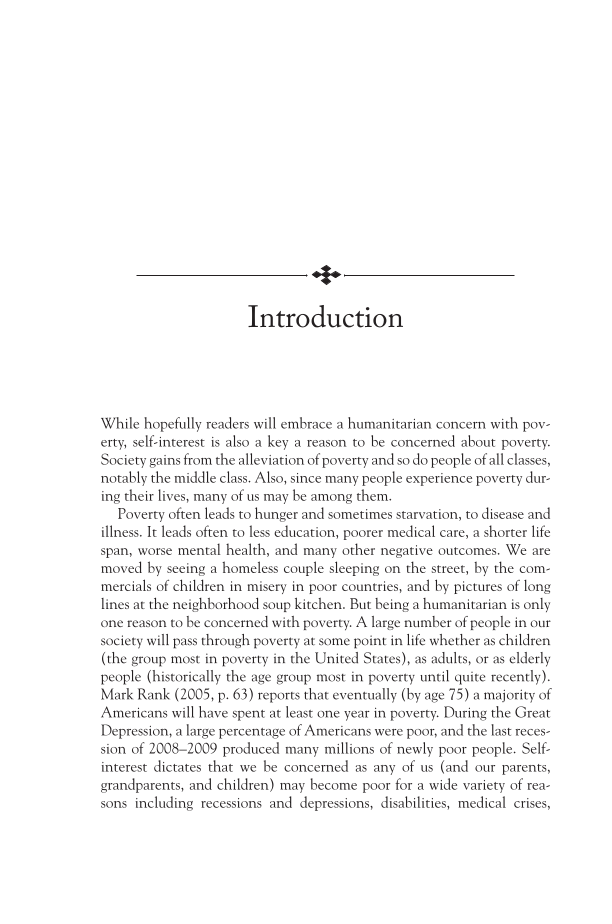Introduction While hopefully readers will embrace a humanitarian concern with pov- erty, self-interest is also a key a reason to be concerned about poverty. Society gains from the alleviation of poverty and so do people of all classes, notably the middle class. Also, since many people experience poverty dur- ing their lives, many of us may be among them. Poverty often leads to hunger and sometimes starvation, to disease and illness. It leads often to less education, poorer medical care, a shorter life span, worse mental health, and many other negative outcomes. We are moved by seeing a homeless couple sleeping on the street, by the com- mercials of children in misery in poor countries, and by pictures of long lines at the neighborhood soup kitchen. But being a humanitarian is only one reason to be concerned with poverty. A large number of people in our society will pass through poverty at some point in life whether as children (the group most in poverty in the United States), as adults, or as elderly people (historically the age group most in poverty until quite recently). Mark Rank (2005, p. 63) reports that eventually (by age 75) a majority of Americans will have spent at least one year in poverty. During the Great Depression, a large percentage of Americans were poor, and the last reces- sion of 2008–2009 produced many millions of newly poor people. Self- interest dictates that we be concerned as any of us (and our parents, grandparents, and children) may become poor for a wide variety of rea- sons including recessions and depressions, disabilities, medical crises,
Document Details My Account Print multiple pages
Print
You have printed 0 times in the last 24 hours.
Your print count will reset on at .
You may print 0 more time(s) before then.
You may print a maximum of 0 pages at a time.






















































































































































































































